 “Concept History and Religious Discourse”
“Concept History and Religious Discourse”
Evan Kuehn, PhD Candidate in Theology
12:15 – 1:30 PM
Swift 208
Lunch will be provided
Abstract:
Since the second half of the twentieth century, the history of concepts (Begriffsgeschichte) has made important contributions to the study of political and social thought, as well as to cultural history more generally. Reinhart Koselleck is generally recognized as the founder of this approach to historical study, which focuses on “basic concepts” without which modern social and political discourse would be impossible. Koselleck has argued that during the eighteenth century, basic concept use in Europe experienced widespread trends of 1) democratization, 2) temporalization, 3) incorporation into ideologies, and 4) politicization. More recently Koselleck’s original proposals have been revisited and reinterpreted, and researchers from Finland, Brazil, England, and other countries have worked to give the project a more global linguistic scope.
This presentation will consider the possibility of a conceptual history of religious discourse. While conceptual history has thus far focused primarily on political and social concepts, some research has more recently turned to religious concepts. This work should be expanded, and can be improved by the insight of theologians and ethicists who often have a better understanding of religious concept use than conceptual historians whose main focus is political thought. I will summarize how concept history could be applied to religious concepts, and how theologians might make a contribution to the theory behind Koselleck’s understanding of modern concept use, particularly with regard to ideas about the secularization of concepts. Questions will also be raised about the extent to which the practice of theological concept history should make normative claims about religious concepts, and how national and linguistic boundaries that are traditionally in play for conceptual history should be modified in the case of religious discourse, which is often more trans-national in scope, or otherwise determined by communal boundaries that do not coincide with official political and linguistic boundaries.
Lisa Landoe Hedrick, PhD Candidate in Theology, will offer a response.
Download Paper
*Reading the paper ahead of time is optional.
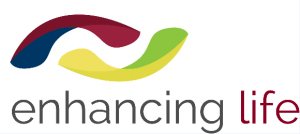 The Enhancing Life Project, Panel Discussion
The Enhancing Life Project, Panel Discussion “Concept History and Religious Discourse”
“Concept History and Religious Discourse”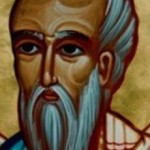 “Majestic and Macabre Mirrors: Virginity and Leprosy in the Theology of Gregory of Nyssa”
“Majestic and Macabre Mirrors: Virginity and Leprosy in the Theology of Gregory of Nyssa”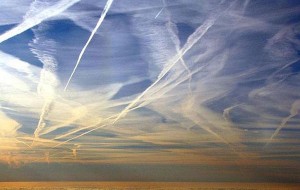 “Ritual, Ethics, and Geoengineering”
“Ritual, Ethics, and Geoengineering”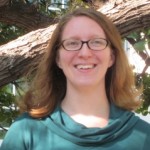 Texas, where she was Associate Professor in the Department of Philosophy and Religion. She is the author of Measuring and Evaluating Sustainability: Ethics in Sustainability Indexes (Routledge, 2013). Her research focuses on sustainability, sustainable energy, environmental guilt and shame, and environmental justice. Professor Fredericks holds a PhD in Science, Philosophy and Religion from Boston University.
Texas, where she was Associate Professor in the Department of Philosophy and Religion. She is the author of Measuring and Evaluating Sustainability: Ethics in Sustainability Indexes (Routledge, 2013). Her research focuses on sustainability, sustainable energy, environmental guilt and shame, and environmental justice. Professor Fredericks holds a PhD in Science, Philosophy and Religion from Boston University.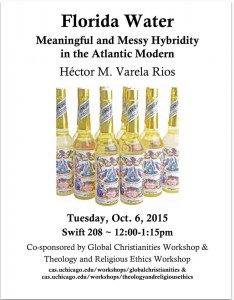 “Florida Water: Meaningful and Messy Hybridity in the Atlantic Modern”
“Florida Water: Meaningful and Messy Hybridity in the Atlantic Modern” Thursday, October 1
Thursday, October 1